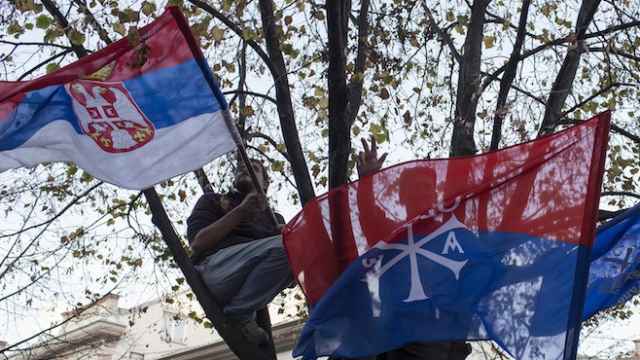Russia broke with the West on Wednesday on an initiative to encourage reform in Bosnia with the carrot of European Union membership, saying that integration with the West was not the Balkan country's only option.
Britain and Germany have proposed unlocking EU cash and putting economic measures before political reforms in a bid to raise Bosnia out of a period of deep stagnation and move it along the path to EU accession.
The initiative won the general support on Wednesday of the Peace Implementation Council, a supervisory body of foreign powers including the United States, EU, Russia and Japan set up after Bosnia's ethnic war in 1992-95.
Only Russia objected, peace envoy Valentin Inzko told a news conference after a meeting of the Council's Steering Board.
"The Russian Federation is of the opinion that Euro-Atlantic integration is not the sole perspective for Bosnia," Inzko, an Austrian diplomat, said after a two-day meeting of political directors of the Steering Board, quoting from a Russian footnote appended to the board's statement.
Russia's ambassador to the former Yugoslav republic could not immediately be reached for comment.
The objection reflected what Western diplomats say is a recent hardening of Russian policy towards the Balkans.
Moscow is nurturing ties with fellow Orthodox Christian Serbs in Bosnia who reject deeper post-war integration with Muslim Bosniaks and Catholic Croats, and are generally more hostile to membership of the EU and NATO.
Power in Bosnia since its 1995 peace treaty has been split along ethnic lines, stifling reform and economic development.
Russia also raised eyebrows in November when, for the first time in 14 years, it declined to support the extension of a Western peacekeeping force in Bosnia, first led by NATO but now by the EU. Russia abstained in the UN Security Council vote.
"They had a different opinion and I respect that," Inzko said. "You are aware of what is happening on the global scene … that European politics has its direction and that Russians, who are not there. …They thought they should not support it."
On a visit to Sarajevo last week, EU foreign policy chief Federica Mogherini urged Russia not to drag the Western Balkans into its deepening rift with the West over Ukraine.
A Message from The Moscow Times:
Dear readers,
We are facing unprecedented challenges. Russia's Prosecutor General's Office has designated The Moscow Times as an "undesirable" organization, criminalizing our work and putting our staff at risk of prosecution. This follows our earlier unjust labeling as a "foreign agent."
These actions are direct attempts to silence independent journalism in Russia. The authorities claim our work "discredits the decisions of the Russian leadership." We see things differently: we strive to provide accurate, unbiased reporting on Russia.
We, the journalists of The Moscow Times, refuse to be silenced. But to continue our work, we need your help.
Your support, no matter how small, makes a world of difference. If you can, please support us monthly starting from just $2. It's quick to set up, and every contribution makes a significant impact.
By supporting The Moscow Times, you're defending open, independent journalism in the face of repression. Thank you for standing with us.
Remind me later.





